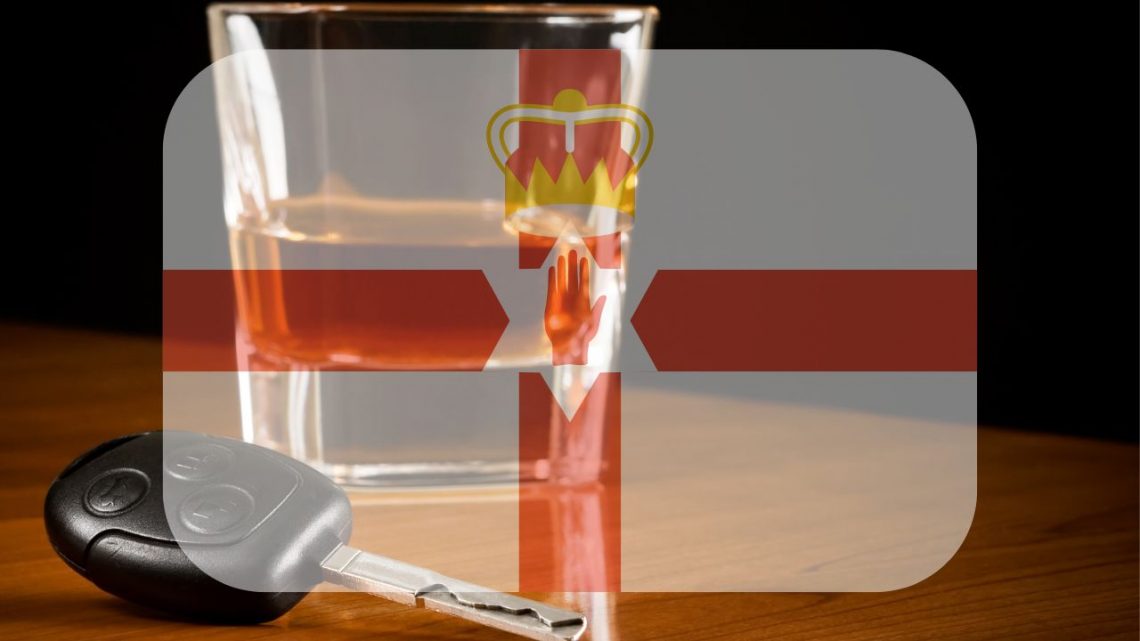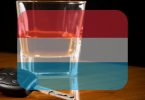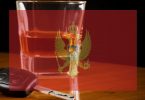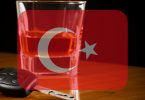In Northern Ireland, holders of a full driving license must comply with a specific Blood Alcohol Concentration (BAC) threshold, which is established at 0.08%, or 0.8 grams of alcohol per liter of blood. This corresponds to around 35 micrograms of alcohol per 100 milliliters of breath in breathalyzer tests.
This page’s goal is to educate and create awareness about the hazards of drunk driving in Northern Ireland. This website does not promote or encourage drinking and driving in any location or country.
What is the legal alcohol limit for driving in Northern Ireland?
In Northern Ireland, the legal alcohol limit for drivers varies depending on the type of driving license they hold. These limits are designed to promote road safety by ensuring drivers remain below a specified Blood Alcohol Concentration (BAC) level. Below is a breakdown of the legal alcohol limits by driver’s category:
- Regular Drivers: The legal BAC limit is set at 0.08% or 0.8 grams of alcohol per liter of blood. This ensures that drivers with a full driving license adhere to safe driving practices.
- Commercial License Holders: For those operating under a commercial license, the legal alcohol limit is more stringent, at 0.02%. This lower limit reflects the increased responsibility of handling commercial vehicles and prioritizes public safety.
- Learner Drivers: Similar to commercial license holders, learner drivers are also subject to a lower BAC limit of 0.02%. This stricter limit aims to instill safe driving habits from the very beginning of a driver’s experience on the road.
Drink and Drive Penalties and Punishments in Northern Ireland
In Northern Ireland, the repercussions for drink driving offenses are severe, with penalties varying based on the gravity of the offense and the specific circumstances surrounding each case. The District Judge assigned to your case will consider all relevant facts before determining the appropriate penalty. It is crucial for drivers to be aware of these potential penalties and to understand that the law takes drink driving offenses very seriously. Below is an outline of possible penalties for various drink driving offenses:
- Causing death or grievous bodily injury by careless driving under the influence: This grave offense can lead to up to 14 years in prison, an unlimited fine, a minimum two-year driving ban, and the requirement to pass an extended driving test to regain your license.
- Driving or attempting to drive above the legal limit or unfit through drink or drugs: Offenders can face six months’ imprisonment, a fine of up to £5,000, a driving ban of at least 12 months (or three years if convicted twice within 10 years), and must pass a driving test before license reinstatement.
- Refusing to provide a specimen for analysis: Penalties include six months’ imprisonment, a fine of up to £5,000, a minimum 12-month driving ban, and the requirement to pass a driving test before getting your license back.
- Being in charge of a vehicle while over the limit or unfit through drink/drugs: This can result in three months’ imprisonment, a fine of up to £2,500, and potentially a driving ban, the duration of which is determined by the District Judge.
The High Risk Offenders Scheme
Drivers classified as ‘high risk offenders’ will not automatically receive their driving license back after a ban. To regain your license, you must pass a medical examination, which includes a higher renewal fee and the cost of the examination itself. High risk offenders include those with two alcohol-related offenses within 10 years, those caught driving with an alcohol level more than two and a half times the legal limit, or those who fail to provide a specimen.
Stay Updated
Laws and penalties can evolve, so it’s important for drivers in Northern Ireland to regularly check the official state website for the most current information regarding drink and drive penalties and punishments. This ensures you stay informed about legal obligations and potential changes that could affect your driving privileges.
How Can I Calculate if My Alcohol Blood Limit is Legal in Northern Ireland?
In Northern Ireland, the police determine if a driver is over the legal alcohol limit primarily through the use of breathalyzers during roadside checks. These devices measure the amount of alcohol in your breath and convert this measurement to a Blood Alcohol Concentration (BAC) level. This process is quick and provides law enforcement with an immediate indication of whether you’re above the legal limit of 0.08% for regular drivers, and 0.02% for commercial and learner drivers.
As an experienced phlebologist with a decade of expertise, I recognize the importance of individuals being able to assess their own BAC levels to prevent impaired driving. Here are two methods I recommend for checking your BAC level:
- Use a High-Quality Alcohol Breathalyzer: For those in Northern Ireland, the BACtrack S80 stands out as a top choice. Its professional-grade accuracy, coupled with approval from the DOT & NHTSA and FDA 510(k) clearance, makes it a reliable tool for personal use. It’s a wise decision to have one in your vehicle as it can provide you with a quick and reasonably accurate assessment of your BAC, helping you make informed decisions about your ability to drive safely. The common misconception about one’s own tolerance levels can lead to unintentional impaired driving; thus, having a breathalyzer like the BACtrack S80 can be a real game-changer.
- Use My BAC Calculator: In collaboration with fellow phlebologists and skilled web developers, I’ve created an online BAC calculator. This tool takes into account factors such as your weight, the type and amount of alcohol consumed, and the time elapsed since drinking to estimate your BAC level. While this method is not as immediate as using a breathalyzer, it can still provide valuable insight, especially if you’re planning your drinking in relation to driving times.
It’s important to remember that both these methods do not guarantee 100% accuracy but are designed to give you a general idea of where your BAC level might stand. Factors such as metabolism, food intake, and individual health can affect BAC results, so these tools should be used as guidelines rather than definitive measures. Ultimately, they can serve as a preventive measure, helping you make safer choices by avoiding driving when there’s a chance you could be over the legal limit.
Ways to Avoid Driving with a High BAC in Northern Ireland
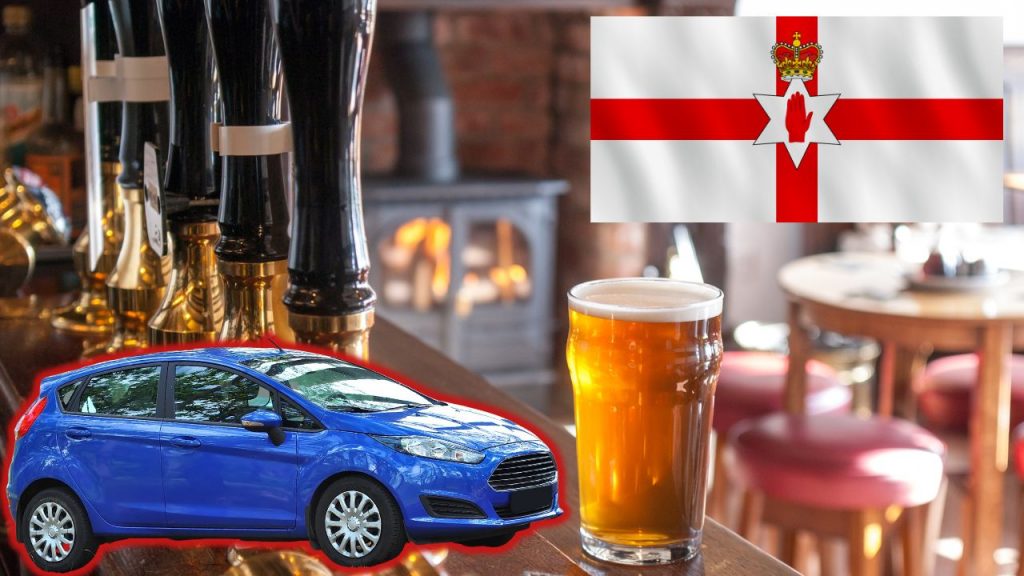
Driving with a high Blood Alcohol Concentration (BAC) is not only illegal but also extremely dangerous to both the driver and others on the road. Fortunately, there are practical steps you can take to avoid driving under the influence in Northern Ireland. Here are some recommendations:
- Utilize Taxi Apps and Local Taxi Services: One of the simplest ways to avoid driving after drinking is to use taxi services. In Northern Ireland, while services like Uber may have varying availability, local taxi companies provide reliable alternatives. For example, in Belfast, you can opt for Peter Pan Taxis, a trusted name for safe and efficient travel. In Derry, City Cabs offers dependable service to get you home safely. These services can be easily contacted through phone or their respective apps, providing a convenient and safe alternative to driving yourself.
- Order a Designated Driver Service: If you find yourself in a situation where you drove to a location but consumed alcohol and are not in a position to drive back safely, consider using a designated driver service. These services provide a driver who will drive you home in your own car, ensuring both you and your vehicle get back safely. In Belfast, the 24/7 Personal Driver service offers a solution, while in Derry, Legenderry Chauffeurs Services can accommodate your needs. Simply searching for “designated driver service” along with your city name on Google will help you find available options in your area.
By planning ahead and choosing alternatives to driving after drinking, you can enjoy your outings without compromising on safety. Whether it’s calling a local taxi or booking a designated driver, these options not only keep you legal but also contribute to the safety of everyone on the road. Always remember, when in doubt, it’s better to not drive and instead rely on these available services to ensure you arrive home safely.
Sticking to Drink and Drive Laws in Northern Ireland: Sad Statistics
Between December 2022 and January 2023, Northern Ireland saw a 3% increase in DUI arrests compared to the previous year, totaling 308 cases. This highlights the ongoing issue of alcohol-impaired driving, which endangers not only the driver but also others on the road.
To mitigate these risks, individuals are encouraged to use alternative transportation methods such as designated driver services or taxis after consuming alcohol. Awareness of local drunk driving laws and self-monitoring through alcohol breathalyzers can further ensure road safety.
For the latest on drunk driving regulations and to stay informed about legal alcohol limits, visiting Northern Ireland’s official government website is advised. Remember, even small amounts of alcohol can impair driving abilities, making it crucial to choose safer travel options.

